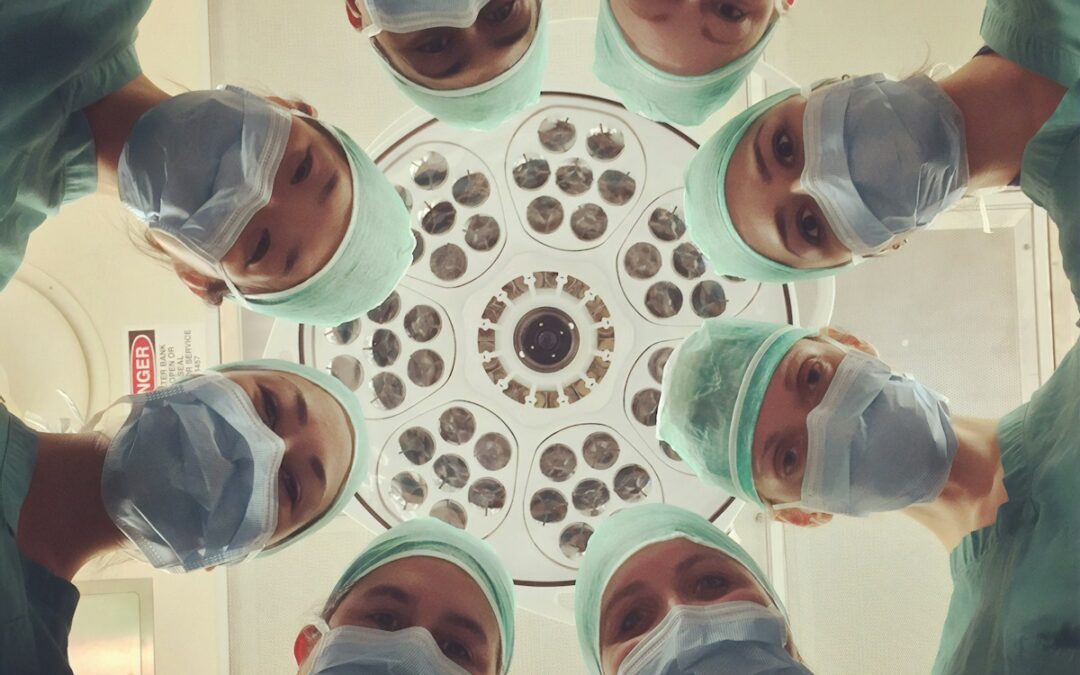Transforming Patient Care with IoT-Enabled Personalized Healthcare Solutions
IoT-enabled personalized healthcare solutions are revolutionizing the healthcare industry by providing adaptive and patient-centric care that adjusts to individual needs. In regions like Saudi Arabia and the UAE, where advanced healthcare systems are a priority, the integration of IoT technology is enabling healthcare providers to offer more effective and responsive treatments. By leveraging IoT devices, healthcare systems can collect real-time data from patients, enabling continuous monitoring and timely interventions that enhance patient outcomes.
The advent of IoT in healthcare has led to the development of smart devices that can monitor a wide range of physiological parameters, such as heart rate, blood pressure, glucose levels, and more. These devices are particularly valuable in managing chronic conditions, where consistent monitoring is crucial for effective treatment. For instance, in a leading hospital in Riyadh, IoT-enabled devices are used to monitor diabetic patients’ glucose levels in real-time, allowing for immediate adjustments to insulin delivery and reducing the risk of complications.
Moreover, the personalization of healthcare through IoT is not limited to physical health monitoring. IoT devices can also track behavioral and environmental factors that influence a patient’s well-being. For example, wearable devices that monitor sleep patterns, physical activity, and stress levels can provide valuable insights that healthcare providers in Dubai can use to tailor wellness programs to each patient’s unique needs. This holistic approach to healthcare, supported by IoT technology, ensures that patients receive care that is both proactive and personalized, ultimately leading to better health outcomes.
Enhancing Patient Engagement and Compliance with IoT
The integration of IoT technology into healthcare not only supports personalized care but also significantly enhances patient engagement and compliance. By providing patients with real-time feedback on their health status, IoT devices empower individuals to take a more active role in managing their health. This shift towards patient-driven care is particularly important in the UAE, where there is a strong emphasis on preventive healthcare and early intervention.
IoT-enabled devices, such as smart pill dispensers and connected inhalers, help ensure that patients adhere to their prescribed treatment regimens. These devices can send reminders to patients, track medication usage, and even alert healthcare providers if a dose is missed. This level of monitoring and support is crucial for managing chronic diseases like asthma, hypertension, and diabetes, where medication adherence is vital for preventing complications. In a clinical trial conducted in Abu Dhabi, the use of IoT-connected devices improved medication adherence rates by 20%, highlighting the potential of this technology to enhance patient outcomes.
Additionally, IoT technology facilitates better communication between patients and healthcare providers. Through connected devices, patients can easily share their health data with their doctors, allowing for more informed and timely decision-making. This real-time exchange of information is particularly beneficial in managing complex health conditions, where frequent adjustments to treatment plans may be necessary. For example, in a healthcare facility in Jeddah, IoT-enabled remote monitoring allows cardiologists to receive real-time updates on their patients’ heart conditions, enabling them to make prompt adjustments to medications and lifestyle recommendations, thereby reducing the risk of adverse events.
The Future of Adaptive Healthcare with IoT
IoT as a Catalyst for Innovation in Healthcare
As IoT technology continues to evolve, its role in healthcare is expected to expand, driving innovation and enabling the development of even more sophisticated and adaptive healthcare solutions. The ability to collect and analyze vast amounts of health data in real-time opens up new possibilities for predictive analytics and personalized medicine. In regions like Saudi Arabia and the UAE, where healthcare innovation is a strategic priority, IoT is set to play a pivotal role in shaping the future of patient care.
One of the most promising areas of IoT-enabled healthcare is the development of AI-driven diagnostic tools. By integrating IoT devices with artificial intelligence, healthcare providers can create systems that not only monitor patients but also predict potential health issues before they arise. For instance, an AI-powered IoT system in Dubai could analyze data from wearable devices to predict the onset of conditions like heart disease or stroke, allowing for early intervention and preventive care. This predictive capability is especially valuable in managing chronic diseases, where early detection and treatment can significantly improve patient outcomes.
Furthermore, IoT technology is facilitating the shift towards home-based care, allowing patients to receive medical attention without the need to visit healthcare facilities. In the UAE, where the demand for telemedicine services has grown significantly, IoT devices are enabling remote consultations, monitoring, and even treatment. This approach not only reduces the burden on healthcare systems but also provides patients with the convenience of receiving care in the comfort of their own homes. For example, IoT-enabled home monitoring systems in Riyadh allow elderly patients to manage their health conditions with minimal disruption to their daily lives, improving their quality of life and reducing the need for hospitalization.
Conclusion: Embracing IoT for a Healthier Future
In conclusion, IoT-enabled personalized healthcare solutions are transforming the way healthcare is delivered, offering adaptive and patient-centered care that meets the unique needs of each individual. By enhancing real-time monitoring, improving patient engagement, and enabling predictive analytics, IoT technology is setting the stage for a future where healthcare is more efficient, effective, and accessible. As Saudi Arabia, the UAE, and other regions continue to invest in healthcare innovation, the integration of IoT technology will be key to achieving better health outcomes and improving the overall quality of care.
—
#IoTHealthcare #PersonalizedMedicine #AdaptiveHealthcare #PatientCentricCare #SmartHealthcare #IoTSolutions #HealthcareInnovation #SaudiArabia #UAE #ModernHealthcare













